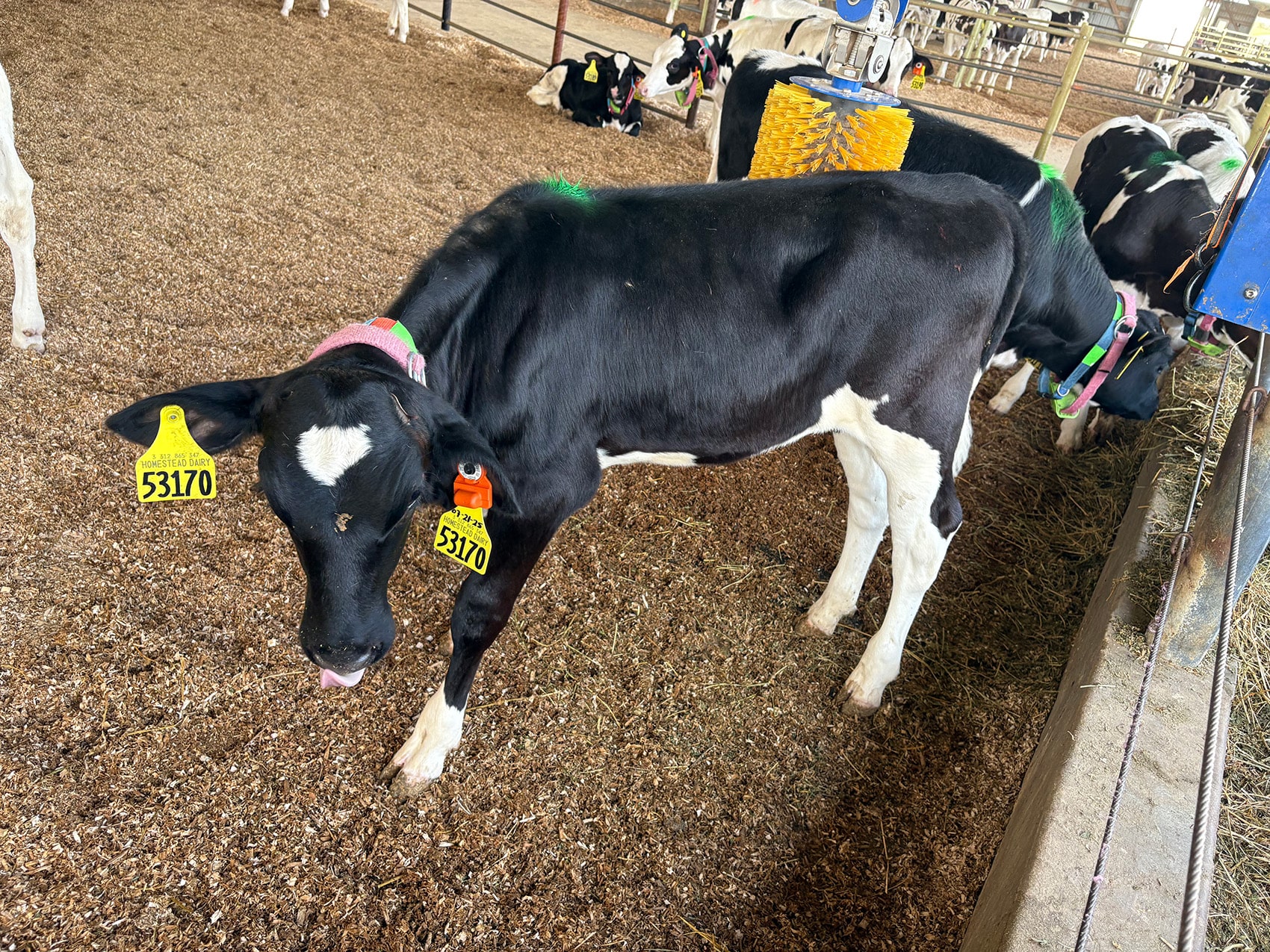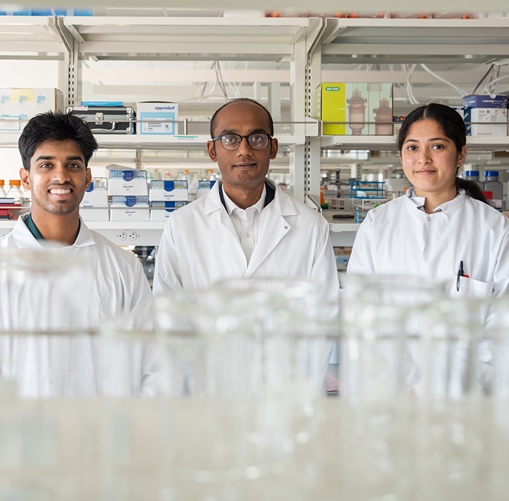ANSC student Anna Heck receives CATE grant for undergrad research
Anna Heck, a sophomore in animal sciences, received a College of Agriculture Transformational Experiences (CATE) grant to support her involvement in undergraduate research within Heather Neave’s animal behavior and welfare lab.
Heck is one of two undergraduates in Neave’s lab to receive the award. In 2024, Emma Hartley earned a CATE grant for her project on selecting the best brush for a dairy herd.
"Seeing both Anna and Emma receive CATE awards has been one of the proudest moments of my time at Purdue," Neave, assistant professor of animal sciences, said. "They each bring curiosity, initiative and a genuine commitment to animal welfare research, and watching them grow from eager new researchers into confident young scientists has been incredibly rewarding. Their creativity, teamwork and dedication have strengthened our lab, and they represent exactly what undergraduate research is meant to foster."
Heck, whose concentration is in pre-veterinary medicine, came to Purdue in 2024 wanting to get involved in research early.
“I had some older friends and cousins who participated in research in college, and it sounded really interesting to me,” Heck said. “But, I wasn't exactly sure what that looked like.”
Heck said her connection with Neave began during a freshman course, when she met her at a mock career fair. After that introduction, she reached out to Neave to learn more about her research program. As a first-semester freshman, she began volunteering in the lab to help with a dairy cattle brush preference trial, assisting with moving cows to the brushes to study their behavior.
The following semester, Heck enrolled in ANSC 295 with Neave to earn course credit for research, joining a cow-calf contact project.
“A lot of the work involved going out after a calf was born to help with calf care,” Heck said. “Over the next few days, we helped with feeding and cleaning the pen, and at the end of the 48-hour period, we ran tests where we separated the cow and calf, then reunited them to observe their behavior and vocalizations.”
As Heck became more involved in the lab, Neave encouraged her to apply for a CATE grant. Heck received the award in fall 2025.
CATE grants provide $500 in funding for undergraduate research projects. Students submit an abstract and a brief description of their project and how the funds will be used. If selected, the award is distributed to the faculty member to help support the student’s research experience and offset project costs.
Heck said receiving the award made her feel like she was taking a step forward as a researcher.
“I was really excited because I feel like it signifies the transition from just getting my feet wet in research to now being part of a project I’m contributing to and receiving a grant for,” Heck said.
 Supported by her CATE grant, Heck has spent the summer and fall contributing to research exploring how sickness behaviors appear in dairy calves and how they relate to grooming and brush use. The project, conducted at a dairy farm in Plymouth, Indiana, involved daily health checks, which included fecal and BRD (Bovine Respiratory Disease) scoring. She is now helping review continuous 24-hour video recordings collected during the study.
Supported by her CATE grant, Heck has spent the summer and fall contributing to research exploring how sickness behaviors appear in dairy calves and how they relate to grooming and brush use. The project, conducted at a dairy farm in Plymouth, Indiana, involved daily health checks, which included fecal and BRD (Bovine Respiratory Disease) scoring. She is now helping review continuous 24-hour video recordings collected during the study.
Neave said Anna’s growth in the lab has been evident through her CATE project.
The study looks at how early behavioral changes can indicate declines in calf health and nutrition. Detecting illness sooner can help producers respond quickly, supporting better recovery and growth.
Heck credits both Neave and Mattie DeHaven, a master’s student in the lab, for mentoring her.
“They’ve both taught me to really think through the information I’m given and to consider it from different perspectives,” Heck said. “Whether it’s designing an experiment or reading someone else’s research, you shouldn’t just accept things at face value. They’ve also encouraged me to put myself out there and try new things because even if you don’t get the opportunity, you still gain valuable experience for the future.”
Heck said research has taught her more than she expected.
“I feel like since being involved with research, I've gained a lot more patience and grit,” Heck said. “Sometimes things don't go exactly as planned, so you have to be willing to adapt and be flexible.”
Heck also had the opportunity to attend conferences with the lab, including the International Society of Applied Ethology meeting at the University of Guelph and the American Dairy Science Association conference. She said these have been some of her favorite experiences as an undergraduate.
She encourages other students interested in research to take the first step.
“If you're interested, reach out to people,” Heck said. “You never know which professors are starting projects or looking for people, even if it feels very awkward.”
Outside of research, Heck serves as vice president of the beekeeping club, is a member of Alpha Omicron Pi and is an Ag Ambassador.






